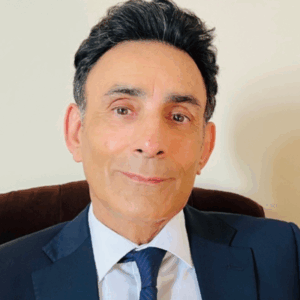

Opiate and opioid misuse has fueled one of Kentucky’s most urgent public health crises, touching families across Louisville from every walk of life. Whether the pills come from a post-surgery prescription or a street dealer, the progression from pain relief to dependence can be frighteningly fast.
Understanding why these medications hook the brain and how modern care approaches break that grip is the first step toward lasting recovery.
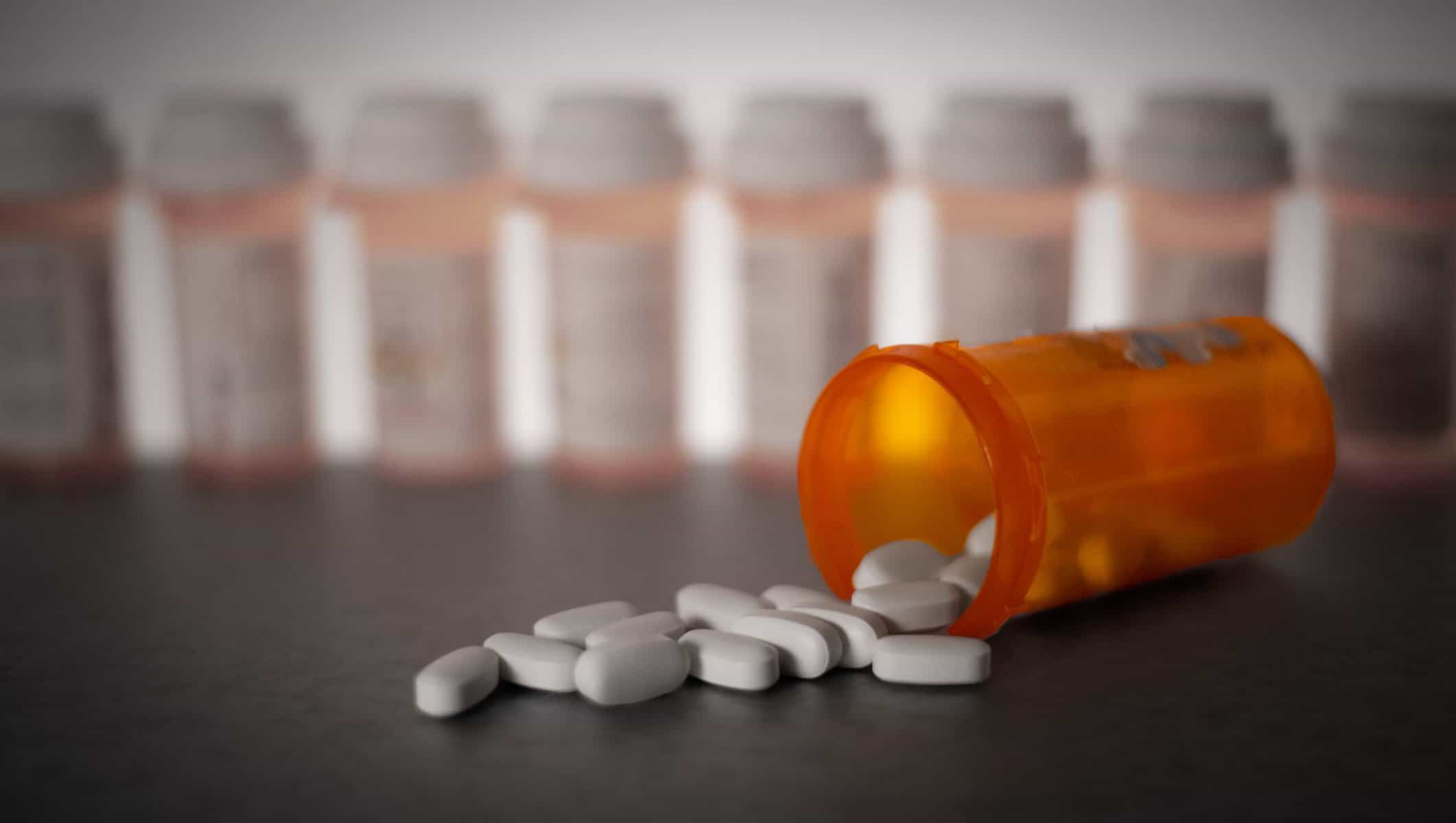
Opiates are the naturally occurring compounds pulled straight from the poppy plant, like morphine and codeine. Opioids is the umbrella term that also covers the semi-synthetic versions (like oxycodone and hydrocodone) and fully synthetic drugs such as fentanyl and methadone.
While all of them lock onto the same mu-opioid receptors to dull pain and trigger euphoria, synthetics bind faster and longer, which can accelerate opioid dependence and raise overdose risk.
Knowing which category a client uses guides dosing for medication-assisted tapers, determines naloxone response times, and helps clinicians predict withdrawal severity.
Trouble often shows up in three places—body, behavior, and mood—and the clues pile up fast.
Physical red flags include rising tolerance (needing more pills for the same relief), pinpoint pupils, flu-like withdrawal between doses, and unexplained weight changes.
Behavioral signs range from doctor-shopping and early refills to missing work, draining savings, or hiding pill bottles around the house.
Psychological cues can be just as loud: anxiety when the supply runs low, mood swings that ease only after using, and failed attempts to quit, followed by shame or secrecy. When several of these markers appear together, delaying care only deepens the rut.
Structured treatment for addiction to opiates offers medical tapers, evidence-based counseling, and relapse-prevention skills—the safest path off the spiral before health, relationships, or finances reach a breaking point.
Additional signs of opiate addiction include the following:
When a person becomes addicted to any drug, those closest to them usually notice a change in their personality and behavior. Opiates are potent drugs that cause intense feelings of pleasure and elation. Many people become addicted to these feelings, especially when they have underlying issues, such as poor mental health or a history of trauma.
Oftentimes, people begin self-medicating with their opiates to “numb” themselves of any distressing thoughts or feelings resulting from these underlying issues. That is why our opiate addiction treatment in Louisville, KY, offers mental health and dual diagnosis treatment to uncover the underlying mental health causes of addiction.
Leaving opioid dependence unchecked can be deadly. The most immediate danger is overdose—respiratory depression that silently shuts down breathing, especially when fentanyl or alcohol is involved.
Repeated injections raise the risk of endocarditis, HIV, and hepatitis C, while chronic pill use can stamp severe constipation, hormonal imbalances, and weakened immune response onto everyday life.
Long-term use also changes brain chemistry, fueling depression, anxiety, and a heightened risk of suicide. Social fallout follows: fractured relationships, job loss, and legal trouble add crushing stress that feeds the cycle.
The longer dependence drags on, the higher the dose required to feel normal, shrinking the margin between “high” and “fatal.” Early, comprehensive treatment breaks this trajectory, restoring health and safeguarding futures before irreversible damage sets in.
Each dose floods the brain with endorphin-like signals, creating an artificial “reward” that far outpaces anything naturally produced. Within days, the brain adjusts by trimming receptor sensitivity; yesterday’s relief now feels muted, so people take more.
This tolerance leapfrogs into dependence: stop suddenly, and flu-like misery, including aches, chills, and stomach cramps, hits hard. To dodge that crash, use continues, carving deep behavioral ruts that are hard to break without structured opiate addiction treatment.
Stress and trauma can speed the cycle, as opioids numb emotional pain alongside the physical. Genetics also play a role. Some people inherit fewer natural endorphin receptors, making the drug’s artificial high feel even more essential.
The takeaway? The chemistry is stacked against willpower alone; evidence-based opiate addiction treatment is what interrupts the spiral before overdose or chronic health damage sets in.
Modern care is no longer one-size-fits-all; a menu of treatment options for opiate addiction now meets people at every stage of readiness. Inpatient opiate addiction treatment places clients in 24-hour settings for medical detox, daily therapy, and round-the-clock monitoring, ideal for severe cases or unstable home environments.
Community-based opiate addiction treatment centers also offer residential stays but may specialize in veterans, women, or dual diagnosis care.
For those who can’t step away from work or family, outpatient treatment for opiate addiction delivers the same evidence-based therapies in flexible blocks: Partial Hospitalization (full-day), Intensive Outpatient (three-hour sessions), and weekly outpatient check-ins.
Peer-led recovery housing and local support groups such as NA or SMART Recovery add a sober community between therapy days.
Finally, Medication-Assisted Treatment (MAT) clinics—like the widely advertised “MAT Clinics in Kentucky” network—pair FDA-approved medications with counseling, bridging the gap between medical and behavioral care.
In short, today’s landscape offers accessible, layered help no matter how intense the addiction or how busy the schedule.
Since withdrawal symptoms from opiates can be intense, the U.S. Food and Drug Administration (FDA) has approved medications specifically to treat opiate addiction and other opiate use disorders. These medications can aid during detox and ongoing recovery when combined with behavioral therapy. This process is called medication-assisted treatment (MAT). Quitting opiates without professional help can be dangerous.
Moreover, withdrawal symptoms can cause a person to feel intense discomfort after a few days without opiates. They could also have strong cravings for the drug at this time.
As a result, they might overcompensate for the time they haven’t been using and take a higher dose than usual. This puts them at a high risk of overdose, which can cause permanent injury or even death.
Medications that treat opiate addiction help to minimize the risk of relapsing by reducing the severity of withdrawal symptoms. They also help to reduce the risk of an overdose in the event of relapse by blocking the effects of opiates.
At our opiate addiction treatment in Louisville, Kentucky, we offer two types of injectable medications during our MAT program:
Vivitrol is a prescription medication used in the treatment of opiate and opioid addiction, offering a powerful tool for relapse prevention. It contains naltrexone, an opioid antagonist that binds to the brain’s opiate receptors without activating them, effectively blocking the euphoric and sedative effects of drugs like heroin, fentanyl, and prescription painkillers. By preventing these effects, Vivitrol helps reduce cravings and supports long-term recovery efforts. Unlike medications such as methadone or buprenorphine, Vivitrol is non-addictive and has no potential for misuse. It is administered as a once-monthly intramuscular injection, ensuring consistent medication levels and eliminating the need for daily dosing.
For individuals who relapse while on Vivitrol, the medication can block the dangerous effects of opioids, reducing the risk of overdose. When combined with counseling, behavioral therapies, and a strong recovery plan, Vivitrol can be an effective component of a comprehensive treatment approach to overcoming opioid dependence.
Sublocade injections contain buprenorphine, which acts on opiate receptors. Thus, Sublocade occupies the space on the receptors and activates them like an opiate. However, the effects of Sublocade are much less intense than opiates.
By acting on the same receptors, it can significantly reduce a person’s cravings and withdrawal symptoms. In addition, Sublocade can block the effects of other opiates by taking up the space on the opiate receptors.
Unlike short-acting medications, Sublocade provides a steady release of buprenorphine over the course of a month, helping to maintain stability and prevent the cycle of highs and lows associated with daily dosing. This long-acting approach can improve treatment adherence and lower the risk of relapse. Clients come in for injections at our outpatient treatment programs once a month. That way, they can continue to live their everyday lives without coming to a clinic each day for their MAT medications. Still, these medications are only part of a comprehensive treatment plan for opiate addiction.
Opiate addiction treatment begins with detox. During detox, a person stops taking opiates and goes through withdrawal. It is best to complete detox at a professional inpatient facility to reduce the risk of relapse and other medical issues.
After detox, many people continue their treatment at a residential facility. However, some people don’t have the time or ability to commit to a long-term inpatient treatment program.
Alternatively, they might leave these facilities and still need additional support to continue their recovery. That is why we offer outpatient programs for opiate addiction treatment in Louisville, Kentucky. These programs allow clients to live at home or in a sober living program during their treatment.
Hear directly from those who have walked the path to recovery. Our patients’ stories highlight the compassionate care, effective programs, and life-changing support they’ve experienced. Let their journeys inspire you as you take your first steps toward healing.

As a comprehensive opiate addiction treatment center, Louisville Addiction Center guides clients through a stepped continuum that keeps care and clinicians under one roof.

PHP meets five days a week for about six hours a day. Mornings start with a vitals check and medication review; afternoons move into CBT, DBT, and family sessions.
Between groups, clients see a nurse practitioner for dose adjustments or symptom concerns.
The structure mirrors an inpatient unit minus the overnight stay, giving people medical oversight and intensive therapy while they sleep in their own beds.

IOP trims care to three-hour therapy blocks, scheduled in the morning or after work. Clients rotate through process groups, skills classes, and individual counseling, then head back to jobs, classes, or parenting duties.
Weekly medical check-ins replace daily rounds, striking a balance between accountability and real-world practice. For many, IOP is the sweet spot where recovery momentum builds without derailing everyday life.

OP is the long-term maintenance lane: one to three hours of counseling each week focused on relapse-prevention plans, drug-screen accountability, and ongoing goal setting.
During our outpatient opiate treatment, Clients process new stressors with a therapist, fine-tune coping skills to manage cravings and triggers for drug use and check in on medication efficacy. The light schedule keeps professional and family routines intact while still offering a safety net if cravings spike.
Holistic supports like yoga, mindfulness, and nutrition coaching run alongside evidence-based sessions, addressing stress, sleep, and overall health.
Family therapy rebuilds trust, while case managers coordinate peer support, transportation, and follow-up medical appointments. Because every phase happens on the same campus, there’s no disruptive hand-off between providers; progress is monitored by the same multidisciplinary team from start to finish.
Clients work with mental health professionals to deal with underlying mental health symptoms often co-occurring with opiate addiction. In addition, MAT can continue at any level of care if a person needs to continue taking medications to stay sober during treatment.
For Kentuckians seeking opiate addiction treatment, Louisville, KY, residents can access this treatment center for opiate addiction that offers a seamless, medically sound path from crisis to stability.
Many opiate addiction treatment programs in Kentucky focus solely on long-term residential stays, while some walk-in MAT clinics dispense buprenorphine with minimal counseling.
Louisville Addiction Center bridges that gap by offering same-day admission, on-site medication management, and a holistic menu that includes yoga, mindfulness practice, and nutrition coaching. Clients progress through a step-down continuum—PHP to IOP to OP—so they can taper services without bouncing between providers.
The result is an evidence-based, whole-person drug treatment opiate addiction pathway that keeps Kentuckians close to home, fully supported, and steadily moving toward long-term recovery.
Price hinges on level of care, treatment length, and insurance benefits.
PHP carries the highest daily rate because of full-day therapy and medical rounds; IOP costs less by trimming to three-hour blocks; OP is the most affordable, charging per weekly session. Medication costs, lab work, and psychiatric visits can nudge the bill up or down.
Louisville Addiction Center partners with most major insurers and offers a quick Verify Insurance tool so you can learn deductibles and co-pays in minutes. Flexible payment plans bridge any remaining gap, ensuring cost never blocks access to quality care.




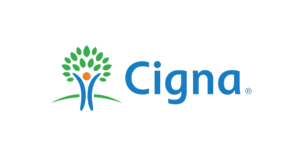


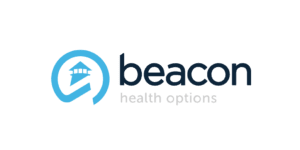
Graduation day starts a new chapter, not the end of care. Most clients taper into the Standard Outpatient Program, meeting one to three hours a week to fine-tune relapse prevention skills and process real-world stressors.
Alumni coordinators schedule monthly check-ins for continued accountability and goal setting.
You’ll also get referrals to community resources: peer-led recovery meetings, sober living homes, job-readiness workshops, and trauma-informed therapists who specialize in treatments for opiate addiction.
Random drug screens, optional booster sessions, and a phone line for urgent support keep momentum strong long after formal treatment ends.
Opiate addiction can quickly take control of your health, relationships, and daily life. Whether dependence began with prescription painkillers or progressed to illicit opioid use, professional treatment is essential for lasting recovery. Louisville Addiction Center provides medically supervised opiate detox and structured rehab services in Louisville, Kentucky.
Opiate withdrawal can include intense cravings, muscle pain, nausea, insomnia, anxiety, and severe emotional distress. Without medical support, relapse risk is extremely high. Our clinical team offers 24/7 monitoring, medication-assisted treatment (MAT) when appropriate, psychiatric evaluation, and individualized therapy plans to promote safe stabilization.
We understand how difficult it can be to take the first step. That’s why our admissions specialists provide confidential support, fast insurance verification, and same-day placement options whenever possible.
If you or someone you love is struggling with opiate addiction in Louisville or surrounding communities, help is available right now.
Call Louisville Addiction Center today. Recovery is possible, and your path forward starts here.
One call can change everything. Dial 502-586-2433 to reach Louisville Addiction Center’s admissions team or click Verify Insurance for a confidential benefits check in under five minutes.
After a brief clinical screening, staff will place you in PHP, IOP, or OP, and when medically appropriate, we offer same-day or next-day admission. They’ll also outline transparent self-pay options and guide you through job-protection paperwork so cost or logistics never block access to care.
Take the first step toward freedom from opiate addiction today.
Get Family Support Now
We understand addiction affects the whole family. Our comprehensive family program helps rebuild trust and restore relationships.
Weekly Family Therapy Sessions
Educational Workshops
Support Groups
Communication Skills Training

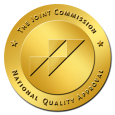
National Institute on Drug Abuse. (2024, June). Opioids. National Institutes of Health. Retrieved August 22, 2025, from https://nida.nih.gov/drug-topics/opioids
National Institute on Drug Abuse. (2024, January). The science of drug use and addiction: The basics. National Institutes of Health. Retrieved August 22, 2025, from https://nida.nih.gov/publications/drugfacts/understanding-drug-use-addiction
Centers for Disease Control and Prevention. (2025, March 20). Understanding the opioid overdose epidemic. CDC Overdose Prevention. U.S. Department of Health & Human Services. Retrieved August 22, 2025, from https://www.cdc.gov/overdose-prevention/
Centers for Disease Control and Prevention. (2024, September). Prescription opioid overdose data. CDC. Retrieved August 22, 2025, from https://www.cdc.gov/overdose-prevention/about/prescription-opioids.html
Kentucky Office of Drug Control Policy. (2023). 2023 drug overdose fatality report [PDF]. Commonwealth of Kentucky. Retrieved August 22, 2025, from https://governor.ky.gov/attachments/2023-Drug-Overdose-Fatality-Report.pdf
Substance Abuse and Mental Health Services Administration. (2023, October). Medication-assisted treatment (MAT). SAMHSA. Retrieved August 22, 2025, from https://www.samhsa.gov/medication-assisted-treatment
World Health Organization. (2022, November). Opioid overdose. WHO. Retrieved August 22, 2025, from https://www.who.int/news-room/fact-sheets/detail/opioid-overdose



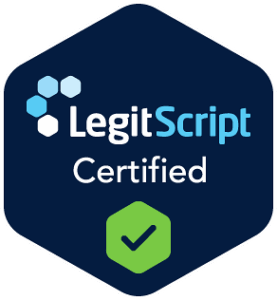
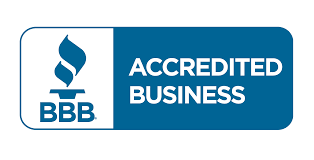




The information presented on Louisville Addiction Center website pages is intended solely for general educational and informational purposes related to addiction treatment, medical detoxification, rehabilitation services, and recovery support. This content is not intended to serve as medical advice, diagnosis, treatment planning, or a substitute for professional medical care. Substance use disorders are complex medical conditions that require individualized evaluation by qualified healthcare professionals.
Detoxification and rehabilitation needs vary widely based on the type of substance used, duration and frequency of use, physical health, mental health history, co-occurring disorders, and other individual factors. Information discussing detox timelines, withdrawal symptoms, medications, or treatment approaches is generalized and may not apply to every individual. Treatment decisions should always be made in consultation with licensed physicians, addiction specialists, or behavioral health providers.
If you or someone you love is experiencing a medical emergency — including but not limited to overdose, seizures, loss of consciousness, breathing difficulties, chest pain, suicidal thoughts, or violent behavior — call 911 immediately or go to the nearest emergency room. Louisville Addiction Center does not provide emergency medical services through this website, and no online content should delay urgent medical intervention.
Attempting to detox from alcohol, opioids, benzodiazepines, or other substances without medical supervision can be dangerous and potentially life-threatening. Withdrawal symptoms can be unpredictable and severe. Any detox-related information provided is for awareness only and should never replace professional medical oversight.
Information regarding insurance coverage, treatment costs, or payment options is provided for general guidance purposes only. Insurance benefits vary by carrier, policy, state regulations, and medical necessity determinations. Coverage information is not guaranteed and may change without notice. Louisville Addiction Center strongly encourages individuals to contact our admissions team directly to verify insurance benefits, eligibility, and coverage prior to making treatment decisions.
While reasonable efforts are made to ensure accuracy, Louisville Addiction Center makes no warranties regarding the completeness or timeliness of website content. Healthcare regulations, clinical standards, and insurance policies evolve regularly. Reliance on any information provided is at your own risk.
This website may include references or links to third-party resources for informational purposes. Such references do not constitute endorsements. Louisville Addiction Center is not responsible for external content, services, or policies.
Use of this website does not establish a provider-patient relationship. Contacting Louisville Addiction Center does not guarantee admission or treatment. Recovery outcomes vary and are never guaranteed.
The content available on Louisville Addiction Center pages is designed to provide educational information related to addiction, detoxification, rehabilitation, and recovery. This information should not be interpreted as professional medical advice or treatment recommendations.
Addiction treatment is highly individualized. Detox and rehab needs vary significantly based on health history, substance use patterns, and mental health considerations. Information provided is general and may not apply to all individuals.
If an emergency arises — such as overdose, severe withdrawal symptoms, or immediate danger — call 911 without delay. Online resources are not a substitute for emergency medical care.
Medical detox should always be conducted under professional supervision. Attempting detox without medical oversight can be dangerous.
Insurance information is provided as general guidance only. Coverage varies by plan and carrier. Louisville Addiction Center encourages all individuals to verify benefits directly with admissions staff.
Recovery outcomes are not guaranteed. Treatment effectiveness depends on many factors including engagement, clinical needs, and aftercare support.
References to external resources do not imply endorsement. Louisville Addiction Center is not responsible for third-party content.
Website use does not establish a provider-patient relationship.
National Institute on Drug Abuse. (2024, June). Opioids. National Institutes of Health. Retrieved August 22, 2025, from https://nida.nih.gov/drug-topics/opioids
National Institute on Drug Abuse. (2024, January). The science of drug use and addiction: The basics. National Institutes of Health. Retrieved August 22, 2025, from https://nida.nih.gov/publications/drugfacts/understanding-drug-use-addiction
Centers for Disease Control and Prevention. (2025, March 20). Understanding the opioid overdose epidemic. CDC Overdose Prevention. U.S. Department of Health & Human Services. Retrieved August 22, 2025, from https://www.cdc.gov/overdose-prevention/
Centers for Disease Control and Prevention. (2024, September). Prescription opioid overdose data. CDC. Retrieved August 22, 2025, from https://www.cdc.gov/overdose-prevention/about/prescription-opioids.html
Kentucky Office of Drug Control Policy. (2023). 2023 drug overdose fatality report [PDF]. Commonwealth of Kentucky. Retrieved August 22, 2025, from https://governor.ky.gov/attachments/2023-Drug-Overdose-Fatality-Report.pdf
Substance Abuse and Mental Health Services Administration. (2023, October). Medication-assisted treatment (MAT). SAMHSA. Retrieved August 22, 2025, from https://www.samhsa.gov/medication-assisted-treatment
World Health Organization. (2022, November). Opioid overdose. WHO. Retrieved August 22, 2025, from https://www.who.int/news-room/fact-sheets/detail/opioid-overdose










Set yourself free from the struggles of addiction and co-occurring mental health disorders. Reach out to our treatment team in Louisville, Kentucky today.
Hear directly from those who have walked the path to recovery. Our patients’ stories highlight the compassionate care, effective programs, and life-changing support they’ve experienced. Let their journeys inspire you as you take your first steps toward healing.


Set yourself free from the struggles of addiction and co-occurring mental health disorders. Reach out to our treatment team in Louisville, Kentucky today.